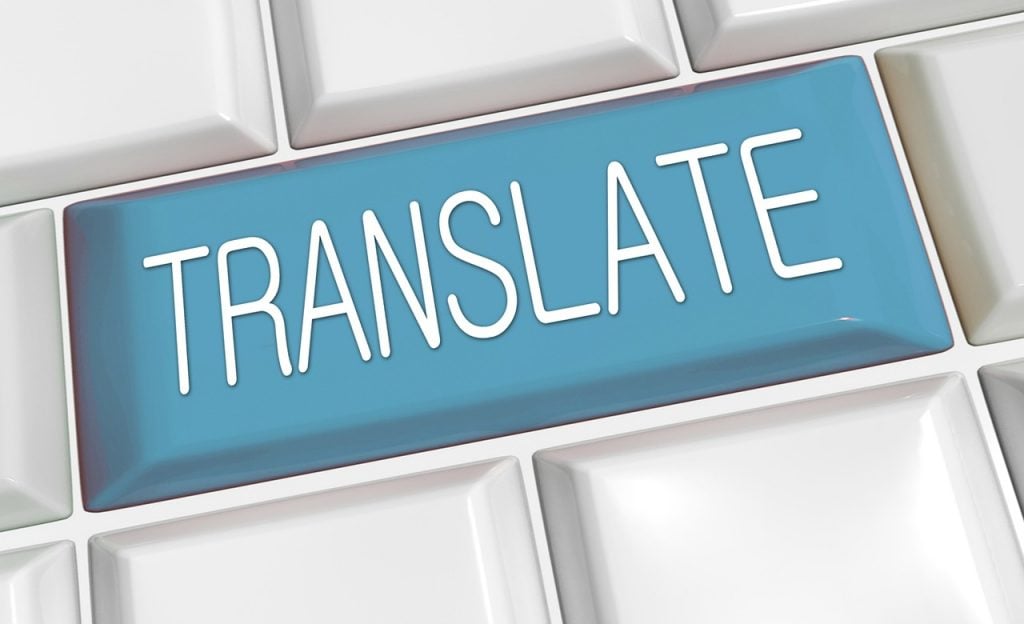Here are 10 most common misconceptions about translators and interpreters that people still tend to believe. Check it out and know the truth.
Translation and interpreting market is very wide and demanding, hence expanding the business of corporate translation services all over the world. There are hundreds of professionals and lots of clients, companies and businesses willing to get high quality services from experts like translator.com.au. However, the majority of people don’t fully understand this industry and tend to believe in the most common myths about translation and interpreting that are not quite true.

Down below you will find out 10 most common myths that you should stop believing right now as these conceptions are inaccurate and unrealistic. If you want to establish successful and effective collaboration with a translator or interpreter or turn for help to an online translation company then you have to understand that the following ideas are not true.
Let’s now cover in depth each of these misconceptions.
Translators and Interpreters Do the Same Thing
Translation and interpreting are two completely different processes that require different education, knowledge and skills. Translation is written transmission of any text in a source language to a target language. Interpreting is transmission of verbal statements and speeches from one language to another in real-time and usually simultaneously.
Translation Is Just Exchange of Words
Many people believe that translation is just a word-to-word transmission of a text to a target language. All languages have completely different vocabularies, grammar, sentence structure and in order to provide translation service it’s important to perfectly know both languages and translate not words but the main sense of a sentence. There could be words and phrases that have no correspondence in another language, therefore, it will be required to convey the meaning.
Bilinguals Can Be Translators and Interpreters
Yes, in order to be a translator or interpreter a person has to know one or more foreign languages. However, it’s not enough to provide professional translation or interpreting services. Professionals should have relevant education, take courses, have a perfect verbal and written command of both languages and know the best translation / interpretation practices to perform duties effectively. Also, in-depth knowledge of subject of translation is also required to guarantee high quality results.
Machine Translation Is Beating the Demand for Human Translation
Whereas machine translation is becoming better and better very fast, it will never beat the demand for human translation. No matter how smart your machine translation tool is, the results won’t be perfect. Quality translation requires knowledge of subject matter, understanding cultural context and so much more details that machines are not able to perceive. Machine translation can provide great drafts that have to be reviewed by professional translators. In case when important documents or texts have to be translated, only a qualified expert can provide high-quality service.
The Need of Translation is Decreasing
With the advent of effective machine translation, people think that the need of translation will decrease. In fact, the opposite is expected. By the year of 2020 the translation job market will grow by 42%. The industry will keep growing and the demand for qualified professional interpreters or translators will be always high.
Translators and Interpreters Work in All Areas of Expertise
Translation is a tedious and time consuming process that requires specialised knowledge. Translators usually have quite narrow expertise in one certain subject or relevant ones to perform quality translation. Legal, medical, economic translation are the different professional fields. Therefore, different experts will be required to perform these types of translation as each of these industries have hundreds of professional jargons and terms that requires additional knowledge.
Translators and Interpreters Work in More Than 2 Languages
There are a limited number of professional who can work with two and more languages. It’s not that common as in order to provide first-rate translation or interpreting it’s mandatory to have a perfect command of a target and source languages. Taking into consideration the depth of linguistic and cultural knowledge required for the job, translators and interpreters usually work only with 2 languages.
Translators Don’t Have to Understand the Material for Translation
It’s impossible to translate the material without understanding it. Translating words is not enough so that people can understand a text. Very often it contains some professional or cultural nuances. In order to explain these details to readers or listeners it’s obligatory for a professional to understand all concepts, terms, linguistic nuances and so on.
Translators and Interpreters Don’t Have to Be Familiar with the Culture of a Target Language
Culture is an inseparable part of any language and knowing the culture of a target language is mandatory for quality translation or interpreting services. It’s important to be familiar with national history, holidays, idioms, cultural nuances in order to convey the meaning in the most easy-to-understand manner.
Translation Can Be Free
There are many online tools that allow translate short phrases or small pieces of text. These services are completely free, however, in case you need quality translation of documents or texts you will have to turn for help to professional translators which require additional expenses. It’s inevitable as their assistance is needed for top-notch results.
Final Thoughts
As you can see, there are so many misconceptions about the professional translators and interpreters that many people still believe in. Translators and interpreters are qualified people with relevant education, experience, certifications, deep language knowledge and not every person can provide the quality translation or interpreting services. This article has debunked the most common ones so you can understand this industry better and establish effective and trustworthy communication with experts to achieve the best possible results.